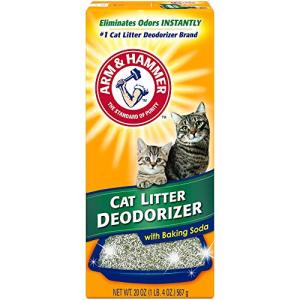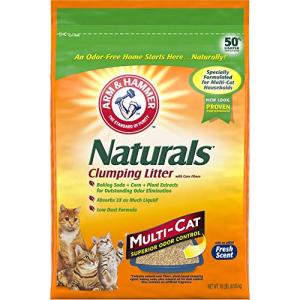Bringing a cat into your life is an incredibly rewarding experience. The soft purrs, the playful antics, the gentle head boops – these are just a few of the countless joys that feline companions bring into our homes and hearts. To ensure your feline friend thrives and fills your home with purrs and joy for many years to come, understanding and meeting their needs is absolutely key. A cat's happiness and health aren't just matters of luck; they are direct results of the informed, dedicated, and proactive care they receive from their loving owners. This guide will equip you with essential tips, spanning across crucial aspects of cat ownership. We'll delve into the secrets of providing optimal nutrition, ensuring top-notch veterinary care, creating an enriching environment, fostering joyful play, and establishing a beneficial grooming routine. Consider this your go-to resource, a roadmap to navigating the wonderful world of cat care, designed to empower you to nurture your feline companion into their happiest and healthiest self. Let's embark on this journey together, filled with practical advice and encouraging guidance, ensuring you feel confident and capable in providing the very best life for your beloved kitty.
Nutrition is the very cornerstone of your cat's health, influencing everything from their energy levels and coat sheen to their immune system strength and overall lifespan. Choosing the right food may feel daunting with the overwhelming variety available, but focusing on quality is the first and most crucial step. Opting for high-quality cat food is not merely a preference, it’s a fundamental investment in your cat's well-being. Premium cat food brands are meticulously formulated to provide a complete and balanced diet, packed with essential nutrients that support every aspect of your cat's physiology. These high-quality options prioritize real, recognizable ingredients, often featuring named meat sources like chicken, turkey, or fish as the primary components. Take a moment to peruse the ingredient list on your cat food packaging. Look for clear identification of protein sources, and ideally, steer clear of foods laden with vague terms like "meat by-products" or those packed with excessive fillers such as corn, wheat, and soy, which offer minimal nutritional value for obligate carnivores like cats. Just as human nutritional needs evolve through different life stages, so do those of our feline companions. Age-specific formulas of cat food are thoughtfully designed to address the unique requirements of kittens, adult cats, and senior cats. Kitten food, for instance, is enriched with higher levels of calories, protein, and essential nutrients to fuel their rapid growth spurts and support bone development and muscle mass gain during their formative months. Adult cat food is balanced to maintain their weight and energy levels without excessive calorie intake, while senior cat food often contains fewer calories, is easily digestible, and may incorporate supplements to support aging joints and cognitive function. Choosing the right formula for your cat's age is a simple yet powerful way to cater directly to their evolving nutritional demands.
When it comes to feeding your feline friend, you’ll encounter the enduring debate of wet versus dry food. Each option offers distinct advantages and disadvantages. Dry food, in its kibble form, presents undeniable convenience, often proves to be more economical, and can contribute to dental health in some cats due to its crunchy texture encouraging chewing action which helps in plaque removal. However, dry food typically contains a lower moisture content. Conversely, wet food shines in its higher moisture content, offering a significant boost to hydration. This is particularly beneficial for cats, who sometimes have a lower thirst drive and may not always drink water readily. Adequate hydration is critical for kidney health and overall urinary tract function. Furthermore, the softer texture and often more palatable aroma of wet food can be particularly appealing, especially for senior cats or those with dental sensitivities. A balanced approach, known as mixed feeding, often proves to be the most beneficial for many cats. Consider offering dry food for free-feeding throughout the day, allowing your cat to graze as they please, supplemented with scheduled wet food meals, perhaps once or twice a day. This strategy allows you to leverage the convenience of dry food while also ensuring adequate hydration through wet food consumption, reaping the benefits of both feeding modalities.
Regardless of the food type you choose, ensuring constant access to fresh, clean water is absolutely non-negotiable for every cat. Hydration is not merely about quenching thirst; it is a vital physiological necessity, playing a pivotal role in a multitude of bodily functions, most notably kidney function and urinary tract health. Cats are naturally prone to urinary tract issues, and maintaining proper hydration is a cornerstone of preventative care. To encourage optimal water intake, create readily available hydration stations throughout your home. Place multiple water bowls in various locations, ensuring they are easily accessible and away from food bowls and litter boxes, as some cats are sensitive to having these resources too close together. Consider experimenting with different types of water bowls – some cats prefer ceramic, others stainless steel, and still others may be drawn to glass. To further entice your feline friend to drink, consider investing in a pet water fountain. These fountains provide a source of constantly moving water, which many cats find inherently more appealing than still water in a bowl. The circulating water also stays oxygenated and often remains cooler and fresher, further increasing its attractiveness to your kitty. Make it a habit to refresh your cat’s water bowls at least once, and ideally twice, daily, ensuring the water remains clean, cool, and inviting.
Overfeeding, often stemming from well-intentioned but misguided generosity, is a common pitfall in cat ownership that can have serious health repercussions. Obesity in cats is not merely a cosmetic concern; it’s a significant health risk factor, dramatically increasing their susceptibility to a range of serious conditions, including diabetes, arthritis, heart disease, and certain types of cancer. These conditions not only diminish their quality of life but can also shorten their lifespan. Practicing portion control is not about depriving your cat; it's about safeguarding their long-term health and well-being. Begin by carefully consulting the feeding guidelines provided on your chosen cat food packaging. These guidelines offer a starting point, typically based on your cat's weight and activity level. However, remember that these are just guidelines, and individual needs can vary. Adjust the portion sizes based on your cat’s specific metabolism, age, activity level, and overall body condition. To ensure accuracy and avoid overestimation, ditch the "eyeballing" approach and invest in measuring cups specifically designed for pet food. Using measuring cups ensures consistent portion sizes at every meal, preventing inadvertent overfeeding. Treats, while delightful for bonding and rewarding good behavior, should be given in moderation and consciously accounted for within your cat’s overall daily calorie intake. Opt for healthy treat options and limit their frequency, viewing them as occasional indulgences rather than a substantial component of their diet.
Just as preventative care is vital for human health, scheduling regular veterinary wellness exams is paramount for maintaining your kitty’s health and longevity. These routine check-ups are not reserved for when your cat is visibly unwell; they are crucial opportunities for proactive health management and early disease detection. Annual veterinary wellness exams are generally recommended for healthy adult cats. However, for kittens, who are rapidly developing, and senior cats, who are more prone to age-related health issues, more frequent check-ups, perhaps every six months, are often advised. These routine visits serve as invaluable preventative care appointments, allowing your veterinarian to thoroughly assess your cat's overall health status, detect any subtle early warning signs of potential health issues, and discuss any concerns you may have regarding your feline companion’s well-being. During a typical wellness exam, your veterinarian will perform a comprehensive physical assessment, carefully checking your cat’s weight, temperature, heart and lung sounds, eyes, ears, teeth, skin, and coat. They will also palpate their abdomen to assess organ health and may recommend blood work, urine tests, or other diagnostic screenings, particularly for senior cats, to proactively screen for underlying conditions and establish baseline health markers. Early detection of health problems significantly improves the chances of successful treatment and better long-term outcomes for your cherished kitty.
Staying up-to-date on vaccinations is a critical aspect of preventative veterinary care, shielding your cat from a host of serious and potentially fatal infectious diseases. Core vaccinations, generally considered essential for all cats regardless of lifestyle, include those protecting against feline viral rhinotracheitis, calicivirus, and panleukopenia (often combined in a FVRCP vaccine), as well as rabies. These vaccinations are crucial for bolstering your cat's immune system and providing vital protection against highly contagious and debilitating illnesses. Discuss your cat's individual lifestyle, risk factors, and geographic location with your veterinarian to determine the most appropriate vaccination schedule and whether any additional, non-core vaccinations might be recommended for their specific circumstances.
Implementing year-round parasite prevention is another non-negotiable element of responsible cat ownership, protecting your kitty from a range of bothersome and potentially harmful parasites. Fleas, ticks, heartworms, and intestinal worms are common culprits that can cause significant discomfort, transmit diseases, and compromise your cat’s health. Year-round parasite prevention is generally recommended, even for cats who live exclusively indoors. Fleas and ticks can easily be brought into your home on your clothing, shoes, or even by visiting pets, and heartworm-carrying mosquitoes can enter homes. Discuss the various parasite prevention options available with your veterinarian. They can recommend the safest and most effective preventative medications tailored to your cat's individual needs, age, lifestyle, and local parasite prevalence. Consistency is paramount for parasite prevention to be effective. Administer preventative medications as directed by your veterinarian and maintain year-round protection to ensure your feline friend remains shielded from these unwelcome pests and the health problems they can cause.
Prioritizing dental health is often overlooked but is profoundly important for your cat's overall well-being and comfort. Dental disease is remarkably prevalent in cats, affecting a significant percentage of felines by just a few years of age. Untreated dental problems can lead to chronic pain, tooth loss, difficulty eating, bad breath, and even systemic infections that can impact major organs like the heart, kidneys, and liver. Regular dental checkups and professional dental cleanings performed by your veterinarian are indispensable for maintaining optimal oral health. Professional cleanings, typically conducted under anesthesia, allow for a thorough examination of your cat's teeth and gums, removal of plaque and tartar buildup below the gum line, and treatment of any underlying dental issues, such as periodontal disease or tooth resorption. Complement professional cleanings with diligent home dental care practices. Ideally, aim for daily tooth brushing using a toothbrush and toothpaste specifically designed for cats (never human toothpaste, which can be toxic to felines). While tooth brushing may require patience and gradual introduction, it is the gold standard for home dental care. If toothbrushing proves challenging, explore alternative options such as dental treats, dental wipes, and dental-specific diets formulated to help reduce plaque and tartar accumulation, supplementing your cat's overall dental hygiene routine.
Finally, being consistently observant of your kitty's health and behavior is perhaps one of the most powerful tools you possess as a responsible cat owner. You are intimately familiar with your cat's unique personality, habits, and routines, making you the first line of defense in detecting subtle changes that might signal an underlying health issue. Make it a practice to truly know your cat's “normal.” Understand their typical energy levels, appetite, water intake, litter box habits, vocalizations, and overall demeanor. Establishing a baseline of normalcy makes it far easier to identify deviations that could indicate a problem. Be vigilant for any changes in these patterns. Decreased appetite or thirst, lethargy, increased hiding, changes in litter box habits (either increased or decreased urination or defecation, straining, accidents outside the box), unusual vocalizations, changes in grooming habits, or any shifts in their typical behavior patterns warrant closer attention. Trust your instincts. If you notice something "just isn't right" with your cat, even if you can't pinpoint a specific symptom, err on the side of caution and promptly contact your veterinarian. Never hesitate to seek professional advice when you have concerns about your cat’s health. Early veterinary intervention can be crucial in achieving successful treatment outcomes for many feline health conditions.
Creating a happy home for your kitty goes beyond just meeting their basic needs; it involves crafting an environment that is enriching, stimulating, and caters to their innate feline instincts. Providing a safe and secure indoor environment is paramount for their well-being and longevity. While some cats may enjoy supervised outdoor excursions, the safest environment for most cats is indoors. Keeping your cat indoors dramatically reduces their exposure to a multitude of dangers prevalent outdoors, including traffic hazards, predatory animals, contagious diseases, and the risk of getting lost or injured. Cat-proofing your home is an essential step in ensuring their indoor sanctuary is truly safe. Secure windows and balconies to prevent accidental falls, especially if you live in an apartment or multi-story home. Keep household cleaners, medications, toxic chemicals, and poisonous plants safely stored out of your cat's reach. Be mindful of small objects that could be ingested and create electrical cord hazards, as curious kitties may be tempted to chew on dangling cords.
Offering scratching opportunities is not simply about protecting your furniture; it’s about catering to a fundamental feline need. Scratching is an instinctive and necessary behavior for cats, serving multiple vital purposes. It allows them to maintain their claws in optimal condition by shedding the outer layers, stretch their muscles, and mark their territory using scent glands located in their paws. Provide a variety of scratching posts and surfaces throughout your home to satisfy these natural urges and redirect scratching behavior away from your valuable furniture. Offer scratching posts in diverse styles – vertical posts, horizontal scratchers, angled ramps – and made from different materials – sisal, carpet, cardboard, wood. Experiment to discover your cat's preferred textures and orientations. Strategic placement of scratching posts is also key. Position them near areas where your cat naturally tends to scratch, such as by sleeping areas, doorways, or prominent pieces of furniture they may have previously targeted.
Creating vertical space and climbing options is essential for enriching your cat’s indoor environment. Cats are natural climbers, instinctively drawn to heights. Providing vertical structures allows them to express this instinct, explore their environment from elevated vantage points, and expand their perceived territory within your home. Cat trees are excellent multi-functional additions, offering scratching surfaces, perches at varying heights, and often cozy hideaways. Install shelves at different levels along walls, creating “cat highways” that allow them to traverse rooms from above. Window perches attached to windowsills offer both climbing opportunities and prime viewing spots for observing the outside world. Window views themselves are a powerful form of enrichment for indoor cats, providing endless entertainment and mental stimulation. Safe access to windows allows them to observe birds, squirrels, insects, and the ever-changing outdoor landscape from the safety of their indoor haven. Ensure window perches are sturdy and securely attached, and that windows are screened to prevent escapes while still allowing fresh air and visual access to the outdoors.
Providing comfortable resting places and safe havens is crucial for your cat to feel secure and content in their home. Offer a variety of beds and hideaways in different locations, catering to their diverse preferences. Soft, plush beds, cozy blankets, enclosed cat caves, cardboard boxes, and even quiet corners under furniture can all serve as comforting retreats. Observe your cat's resting preferences. Some cats prefer elevated beds for a sense of security, while others gravitate towards snug, enclosed spaces. Offer a variety of options and allow your cat to choose their preferred resting spots, ensuring they have options for different moods and preferences.
Finally, meticulous litter box management is not just about hygiene; it is about ensuring your cat's comfort and well-being, preventing litter box aversion, and maintaining a harmonious home environment. The general rule of thumb for the number of litter boxes is to provide one more litter box than the number of cats in your household. This minimizes competition and ensures that each cat has readily available and clean litter box options. Litter box location is paramount. Place litter boxes in quiet, easily accessible areas that offer some degree of privacy but are not completely isolated or difficult to reach. Avoid placing litter boxes near food and water bowls, as cats generally prefer to eliminate away from their eating areas. Experiment with different types of cat litter to find what your cat prefers. Unscented, clumping litter is often a good starting point and generally well-tolerated by most cats. However, some cats may have preferences for different textures or materials. Regular cleaning is non-negotiable. Scoop solid waste and urine clumps from the litter box at least once daily, and ideally twice a day. Regularly perform complete litter changes, typically every one to two weeks, depending on the type of litter used and the number of cats using the box. Thorough and consistent litter box hygiene is critical for preventing odors, maintaining a clean and pleasant environment, and ensuring your cat continues to use their litter box reliably.
Creating a happy kitty truly extends beyond meeting their physical needs; it encompasses nurturing their mental and emotional well-being, ensuring they are not just healthy but also joyful and content. Engaging in daily interactive play is fundamental to their emotional and physical health. Play is not simply recreation for cats; it's an essential outlet for their natural instincts, providing crucial physical exercise, mental stimulation, and opportunities to fulfill their innate hunting drives in a safe and controlled environment. Interactive play, where you actively participate with your cat, is particularly beneficial, fostering a stronger bond between you and your feline friend. Utilize interactive toys such as wand toys, feather wands, and laser pointers (used responsibly) to mimic the movements of prey and engage their predatory instincts. Aim for short, frequent play sessions throughout the day, rather than long, infrequent ones, as cats typically have bursts of energy followed by periods of rest.
Puzzle toys and enrichment feeders offer another avenue for promoting mental well-being. These toys challenge your cat to problem-solve and work for their food rewards, providing mental stimulation that prevents boredom and keeps their minds sharp. Puzzle feeders also have the added benefit of slowing down eating, which can be beneficial for digestion and weight management, particularly for cats who tend to gulp down their food quickly. Providing love and affection is a cornerstone of a happy kitty, but it’s essential to offer affection on their terms. While cats are often perceived as independent creatures, they do need social interaction and thrive on affection from their human companions. Learn to understand your cat’s body language and recognize when they are receptive to affection and when they prefer to have their space. Gentle petting, soft vocalizations, simply spending quiet time in their presence, and respecting their cues are all forms of affection that cats appreciate. Creating a routine and predictability in your cat's daily life is also surprisingly important for their emotional well-being. Cats are creatures of habit and thrive on predictability. Establishing a consistent daily routine for feeding times, playtime, grooming sessions, and even bedtime, if possible, can provide a sense of security and reduce stress and anxiety. Minimize sudden changes in their environment or daily routine whenever possible, as cats are often sensitive to disruptions. When changes are unavoidable, introduce them gradually and provide extra reassurance and comfort to help your kitty adjust.
Grooming, while sometimes perceived as a chore, is actually a valuable aspect of cat care that contributes significantly to both their health and happiness. Establishing a regular grooming routine offers a multitude of benefits that extend far beyond just aesthetics. Regular brushing helps to remove loose hair, significantly reducing shedding around your home and minimizing the risk of hairballs forming in your cat’s digestive system. Grooming also helps prevent mats and tangles, particularly important for long-haired breeds, keeping their coat healthy and comfortable. The act of brushing stimulates blood circulation in the skin, promoting a healthy coat and skin. And perhaps most importantly, grooming sessions provide valuable bonding time between you and your cat, strengthening your relationship through gentle touch and focused attention. The frequency of brushing depends on your cat's coat type. Short-haired cats typically benefit from brushing a few times a week, while medium-haired and long-haired cats may require daily brushing to prevent matting. Make grooming a positive experience by using gentle handling, speaking softly, and offering treats or praise as rewards, transforming grooming sessions into enjoyable bonding time for both of you.
Trimming nails regularly is an essential part of routine grooming, preventing overgrowth, painful ingrown nails, and minimizing scratches to yourself and your furniture. Learn safe nail trimming techniques or seek guidance from your veterinarian or a professional groomer to ensure you trim your cat’s nails correctly and safely. Cleaning ears should be incorporated into your routine as needed. Regularly check your cat's ears for signs of dirt, excessive wax buildup, redness, or discharge. If cleaning is necessary, use a cat-specific ear cleaning solution and gently clean the outer ear flap, avoiding inserting anything deep into the ear canal. Bathing, while generally not necessary for cats as they are meticulous self-groomers, may occasionally be required. Situations where bathing might be needed include if your cat gets into something particularly messy or if they have a skin condition that requires medicated baths, as advised by your veterinarian. If bathing becomes necessary, make the experience as stress-free as possible by using a calm and reassuring approach, lukewarm water, and cat-specific shampoo.
In conclusion, providing for your cat's happiness and health is a multifaceted and deeply rewarding journey. By consistently implementing these essential tips – from nourishing them with high-quality food and ensuring proactive veterinary care to creating an enriching environment, fostering play and mental well-being, and establishing a regular grooming routine – you are laying the foundation for a long, healthy, and joyful life for your feline companion. Remember that a happy and healthy kitty is a joyful companion, enriching your life with their purrs, playful moments, and unconditional affection. Embrace the ongoing learning process of cat ownership and continuously adapt your care to your individual cat’s evolving needs and preferences. Start implementing these tips into your daily cat care routine today and relish in the wonderful companionship of your happy and healthy kitty for years to come! The special bond you share with your cat is a unique and precious gift – cherish every purr, every head boop, and every playful pounce, knowing you are providing them with the love, care, and environment they need to thrive and fill your home with feline joy.







